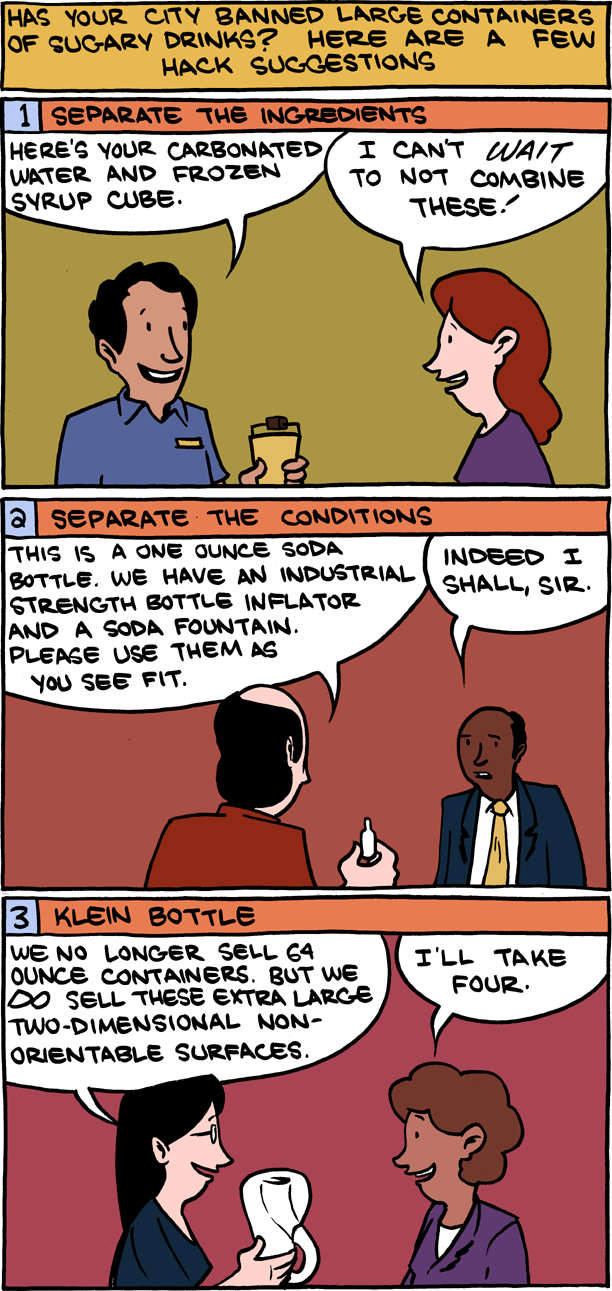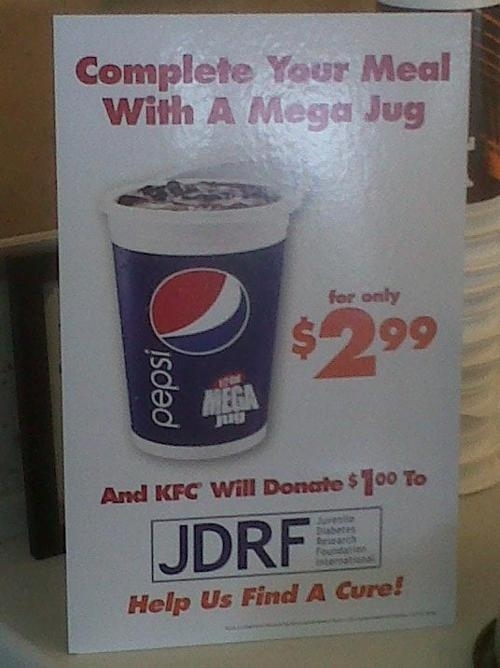Where is it, out of curiosity? Incidentally, it's not just Bloomberg's heart we're talking about, it's these folks' collective heart:
Thomas Farley, MD, MPH, Chair
Dr. Farley was appointed New York City Health Commissioner in May 2009. One of the world's oldest and largest public health agencies, the department has an annual budget of $1.6 billion and more than 6,000 staff. Before joining the agency, Dr. Farley was chair of the Department of Community Health Sciences at the Tulane University School of Public Health and Tropical Medicine. Trained as a pediatrician, he served in the Centers for Disease Control's Epidemic Intelligence Service and worked for the CDC and the Louisiana Office of Public Health from 1989 to 2000. During that period he directed programs to control various infectious diseases. He served as Senior Adviser to New York City Health Commissioner Thomas Frieden in 2007 and 2008. Dr. Farley has conducted research and published articles on a wide range of topics, including Legionnaires' disease, prevention of HIV/STDs, infant mortality, and obesity. He is coauthor, with RAND Senior Scientist Deborah Cohen, of Prescription for a Healthy Nation (Beacon Press).
Marlon E. Brewer, M.D.
Dr. Brewer is an assistant professor of medicine at the Mount Sinai School of Medicine and Associate Director/Chief Physician for ambulatory care at Elmhurst Hospital. Dr Brewer had been providing care to patients in Queens for more than 15 years and received recognition for his work in improving diabetes care. He was appointed to the Board of Health by Mayor Michael Bloomberg in 2006.
Pamela S. Brier, M.P.H.
Ms. Brier, president and CEO of Maimonides Medical Center in Brooklyn, is widely recognized as a leader in health care in New York City. An expert in both public health and hospital administration, she is credited with significantly improving patient care and using information technology to improve the speed, effectiveness and safety of medical treatment. Ms. Brier was appointed to the Board of Health by Mayor Michael Bloomberg in 2002.
Sixto R. Caro, M.D.
Dr. Caro is a private practitioner in Brooklyn and Manhattan, specializing in internal medicine. He has worked to promote the health of the Hispanic population in New York City and served as president of the Spanish American Medical and Dental Society of New York in 2006. Dr. Caro was appointed to the Board of Health by Mayor Michael Bloomberg in 2002.
Joel A. Forman, M.D.
Dr. Forman is an Associate Professor of Pediatrics and Community and Preventive Medicine at Mt. Sinai School of Medicine as well as an Attending at Mt. Sinai Hospital. He also serves as the Chairman of the Mt. Sinai Health Information Management Committee, Pediatric Residency Training Program Director, Co-Director of the Pediatric Environmental Medicine Fellowship, Vice-Chair for Education in the Department of Pediatrics, and is a faculty member in Mount Sinai's CDC funded Pediatric Environmental Health Specialty Unit and Pediatric Environmental Fellowship. He has worked with the NYC Health Department in the past. From 2002-2004 he collaborated with our Lead Poisoning Prevention Program and from 2007-2009 he worked as an external clinical advisor to formulate Clinical Guidelines for Children and Adolescents Exposed to the World Trade Disaster. He received his BA from University of Pennsylvania and his MD from University of Vermont College of Medicine. Dr. Forman was appointed to the Board of Health by Mayor Michael Bloomberg in 2010.
Sandro Galea, MD, MPH, DrPH
Dr. Galea serves as Professor and Chair at the Department of Epidemiology at Columbia University Mailman School of Public Health. His primary research interests are on the causes of mental disorders and the role traumatic events play in shaping population health. Dr. Galea also runs a research program that seeks to uncover how social, molecular, and genetic factors shape the health of urban populations. He has previously served on the faculty at the University of Michigan and as an epidemiologist at the New York Academy of Medicine. Dr. Galea was appointed by Mayor Bloomberg to chair the Community Services Board in 2012 and serves as its representative on the Board of Health.
Deepthiman K. Gowda, MD, MPH
Dr. Gowda is an Assistant Clinical Professor of Medicine and Co-Course Director at Columbia University. He received his Doctorate of Medicine degree from the University of North Carolina and his Masters in Public Health from Harvard University. Dr. Gowda is a scholar of the Glenda Garvey Teaching Academy and has been recognized for his outstanding teaching at Columbia Universitys medical, dental, nursing and public health schools. Dr. Gowda was appointed to the Board of Health by Mayor Michael Bloomberg in 2011.
Susan Klitzman, DrPH
Dr. Klitzman is a professor and director of the Urban Public Health Program at Hunter College. As an environmental epidemiologist, she has focused on issues of health and safety at home and at work, including efforts to reduce lead, mold and pest exposures in New York City. She previously directed programs in childhood lead poisoning prevention, occupational and environmental epidemiology, and employee health and safety at the Health Department. She was appointed to the Board of Health by Mayor Michael Bloomberg in 2002.
Lynne D. Richardson, M.D., F.A.C.E.P.
Dr. Richardson is an associate professor of emergency medicine and vice chair of Academic, Research and Community Programs at the Mount Sinai School of Medicine. She is known nationally for her research in emergency medicine, focusing specifically on health care access and barriers to care. Dr. Richardson serves on the Society for Academic Emergency Medicine Healthy People 2010 Task Force and the American College of Emergency Physicians Public Health Committee. She was appointed to the Board of Health by Mayor Michael Bloomberg in 2002.
Bruce C. Vladeck, Ph.D.
Dr. Vladeck is a senior advisor at Nexera Consulting. Previously, he was Administrator of the Health Care Financing Administration, the federal agency responsible for Medicare, Medicaid, and related programs. He spent ten years as President of the United Hospital Fund of New York, and has served on the faculty of Columbia University and Mount Sinai School of Medicine. He was appointed to the Board of Health by Mayor Michael Bloomberg in 2002.




